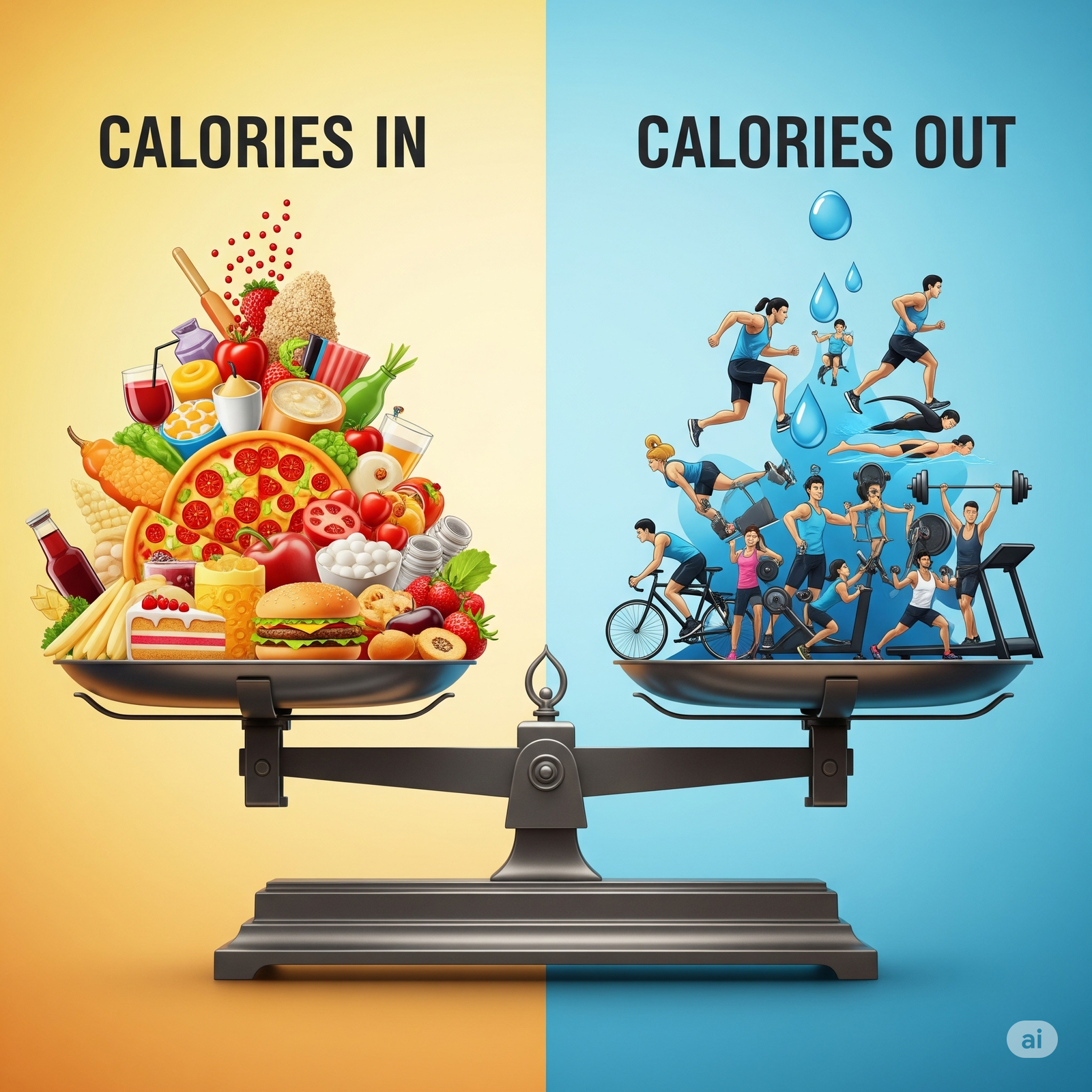he journey towards a healthier lifestyle is often paved with well-intentioned but ultimately misleading information. When it comes to weight loss, the sheer volume of advice can be overwhelming, making it difficult to distinguish between what’s fact and what’s simply a myth. Today, we’re debunking some of the most persistent and damaging misconceptions about weight loss to help you navigate your path with clarity and confidence.
Myth 1: Crash Diets are the Fastest Way to Lose Weight
Busted: While extremely low-calorie diets might show rapid results initially, this weight loss is often due to water loss and muscle mass, not primarily fat. Crash diets are unsustainable, can lead to nutrient deficiencies, and often result in rebound weight gain once you return to normal eating. Sustainable weight loss is gradual and focuses on long-term healthy habits.
Myth 2: You Need to Cut Out Entire Food Groups to Lose Weight
Busted: Unless you have a specific medical condition or intolerance, eliminating entire food groups (like carbohydrates or fats) is generally not necessary and can even be detrimental. Your body needs a balanced intake of macronutrients (carbs, fats, and proteins) for optimal function. Focus on making healthy choices within each food group and practicing portion control.
Myth 3: Exercising Less Will Help You Lose More Weight (To Conserve Energy)
Busted: This is counterintuitive and completely false. Physical activity is crucial for weight loss and overall health. It burns calories, helps build muscle mass (which boosts metabolism), and improves cardiovascular health. While diet plays a significant role in creating a calorie deficit, exercise is an essential component of a healthy and sustainable weight loss plan.
Myth 4: “Fat-Free” or “Low-Fat” Foods are Always Healthy Choices
Busted: Often, when fat is removed from processed foods, it’s replaced with added sugars, salt, and artificial ingredients to improve taste and texture. These additions can negate any potential benefits and even contribute to weight gain. Always read food labels carefully and focus on whole, unprocessed foods rather than relying solely on “fat-free” or “low-fat” labels.
Myth 5: You Should Only Weigh Yourself Once a Week
Busted: The frequency of weighing yourself is a personal preference. Some people find daily weigh-ins motivating and helpful for tracking progress and making necessary adjustments. Others may find it stressful and prefer weekly check-ins. The most important thing is to be consistent with when you weigh yourself (e.g., same time of day, same scale) and to view the number as one piece of the puzzle, not the sole indicator of success.
Myth 6: Eating After a Certain Time Will Lead to Weight Gain
Busted: It’s not when you eat that primarily determines weight gain, but rather how much you eat throughout the entire day and the overall calorie balance. If you’re consistently consuming more calories than you burn, you will gain weight, regardless of the time of day. However, for some individuals, late-night snacking might lead to consuming extra, unnecessary calories.
Myth 7: You Need Expensive Supplements to Lose Weight
Busted: The vast majority of weight loss supplements are ineffective and some can even be harmful. There’s no magic pill or powder that will make you lose weight without making lifestyle changes. Focus on a balanced diet and regular exercise – these are the cornerstones of healthy and sustainable weight loss.
By understanding and debunking these common weight loss myths, you can approach your weight loss journey with a more informed and realistic perspective. Focus on building healthy, sustainable habits that you can maintain long-term, and don’t fall for quick fixes or misleading claims.













Leave a Reply